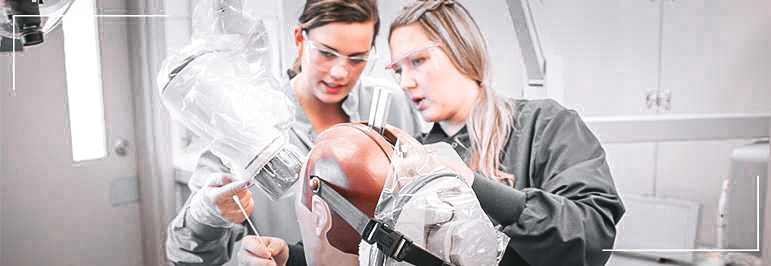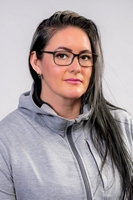Dental Assisting
Dental Assisting - Certificate

Take the right steps to launch your career as a dental assistant. The Dental Assisting Program at Bellingham Technical College will provide top job training so you’ll learn how to assist dentists in caring for patients and how to work effectively in a dental office.
Choose BTC’s Dental Assisting Program to train for a position as a dental assistant. Learn how to provide patient care, perform office duties and lab work.
This certificate will introduce the student to the National Entry Level Dental Assistant (NELDA) exam offered through the Dental Assisting National Board, should the student choose to take the exam.
The NELDA exam is comprised of three component exams:
- Anatomy, Morphology and Physiology
- Infection Control
- Radiation Health and Safety
The certificate will be based on the Exam Outlines available through the Dental Assisting National Board website for each of the three components with additional content added to the Foundations of Clinical Procedures course.
The Dental Assisting Certificate Program is not a CODA Accredited Program. The BTC Dental Assisting program discontinued its accreditation through CODA in August 2020.
Note: BTC has not made a determination that the Dental Assisting curriculum meets educational requirements for licensure/certification outside of Washington State. We encourage students who plan to work out-of-state to check relevant local licensure/certification requirements.
Employment Information
Data are provided on a program (not credential) level
87% BTC graduate placement rate1
$49,920 starting annual wage2
$58,240 average annual wage2
$64,480 potential annual wage2
Entry Information
When Can I Start?
Students interested in the Dental Assisting program should apply to the college and contact Admissions at 360.752.8345 or at admissions@btc.edu for assistance with getting started at BTC. A college application and your score on assessment testing and/or previous transcripts will determine where you begin your course sequence.
There is NO application required for this program.
The student navigator will help you plan a course of study. This program will admit students into first quarter core courses in the fall, winter and spring.
What are the Minimum Entry Requirements?
A completed college admissions application and placement in English and Math. BTC uses a Guided Self-Placement process to help you choose the best starting point for your English and Math courses. Your selections will determine whether you begin with program coursework or complete prerequisites classes first.
To get started or for help determining your English and math placement, contact the Outreach department at Outreach@btc.edu.
Early Program Course Requirements
Physical Requirements
What are My Next Steps?
Classes
Total Program Credits: 35
Quarter 1
DEN 101 Introduction to Dental Assisting 3 CR AENGL 100 Applied English 5 CR Or higher AMATH 100 Applied Occupational Math 5 CR Or higher CMST& 210 Interpersonal Communication 5 CR Quarter 2
DEN 106 Fundamentals of Dental Safety 4 CR DEN 107 Dental Assisting Radiology 3 CR DEN 108 Foundations of Clinical Procedures 4 CR DEN 109 Dental Assisting Lab Practicum 6 CR
Program Outcomes
- Apply academic, technical, and professional skills to effectively contribute to the dental health team.
- Apply cognitive retention of dental terminology, theory, and science.
- Expose and evaluate intraoral and extraoral radiographs implementing radiation safety and processing skills.
- Verify critical thinking, problem solving, and positive work ethics as they directly relate to the Dental Assistant profession.
- Validate the importance of National Certification and participation in professional activities and education opportunities.
Employment Outlook
Employment opportunities for dental assistants in Washington State are expected to grow due to rapid employment growth and above average job turnover.
Criminal convictions may restrict or prevent student participation with internships and employment in this industry.
Most dental assistants are employed by private dental offices. Dental assistants may also be employed by orthodontists, periodontists, hospitals, dental schools, state and local public health departments, the military, or in clinics. Although most program graduates work as dental assistants, opportunities may also exist for employment as research assistants or sales representatives.
Faculty & Support

Karen McGuinn
Dental Assisting
Alisa Wollens
Dental Assisting & Dental Hygiene Programs Coordinator/Instructor
Nicole Baker
College NavigatorContacts
If you have questions about this program or want help with the admissions steps to Bellingham Technical College, please email outreach@btc.edu.
Current students wanting academic planning and support, can connect with the program Instructor(s) or email NursingAlliedHealthNav@btc.edu
